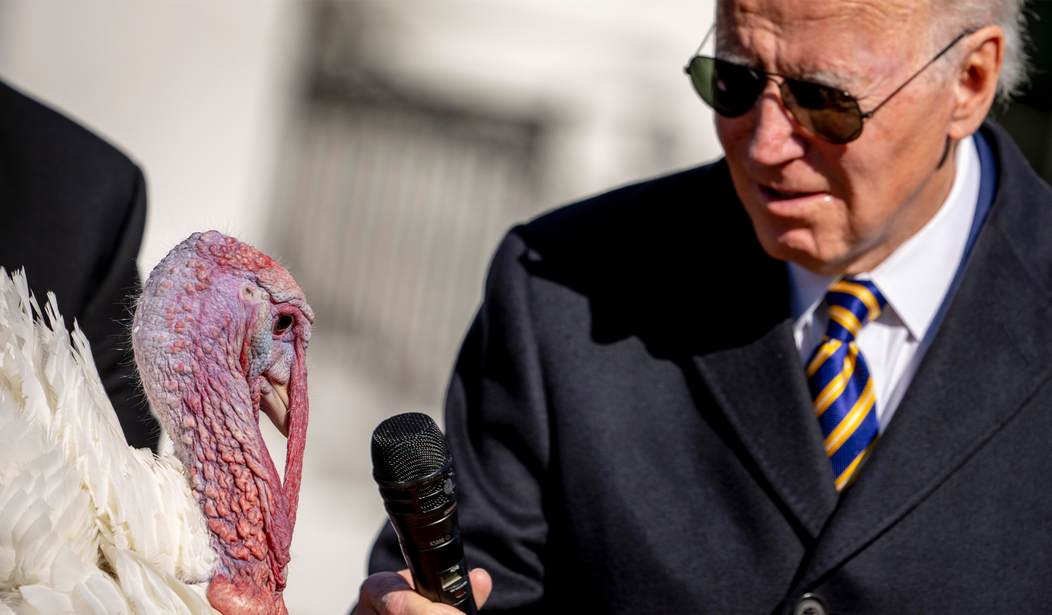Most Americans meticulously plan their Thanksgiving meals and travel, sometimes budgeting months in advance to celebrate at a reasonable price tag. This prudent embodiment of gratitude and restraint starkly contrasts with the approach of our politicians. It's an inconsistency that, especially this season, merits reflection.
Much like our Thanksgiving appetites, the national debt has swelled to gargantuan proportions. Budget gluttony practically defies the laws of fiscal gravity. In 2023, we reached a record $33 trillion in national debt and a $1.7 trillion deficit. Politicians have opted for the equivalent of year-round sumptuous feasts while ignoring the costs.
Contrast this childish gluttony with the festive abundance on our Thanksgiving tables, resulting from responsible planning and budgeting. After all, we can't eat like this every day. Such mature behavior seems alien to politicians.
Indeed, Thanksgiving is not merely about the harvest but also about conservation and preparation for winter. Our ancestors understood this. They knew that a squandered harvest meant privation in the months ahead. A family that spends beyond its means this week might face immediate financial consequences, and it can't save the bill for the kids to pay when they grow up.
That behavior is reserved for Washington politicians. It's a cycle of deferral transforming the national debt from a temporary ledger of manageable liabilities into a looming threat to our children's future.
Similarly, most Americans understand how to make trade-offs. Thanksgiving dinner has gotten a lot more expensive. The American Farm Bureau Federation's annual survey estimates that a standard turkey dinner cost is about 25% higher than in 2019. Holiday travel is also a significant expense, as nearly 29% of Americans planned to spend more than $500 on it last year.
Recommended
And with prices soaring, our behavior surrounding the holidays also changed. Last year, 33% of Americans said that high inflation wouldn't affect their Thanksgiving plans, but most looked for ways to cut costs, including reducing the number of dishes prepared or asking guests to contribute food or funds. One in four considered skipping Thanksgiving due to the surge in prices. Others drove rather than fly to visit family to make up for the surge in airfares.
Imagine if we applied the same careful planning to our national budget. If Congress behaved more like American families, we'd see better ways to offset the costs of emergencies like the COVID-19 pandemic. As inflation emerged (thanks to their overspending), Congress would slow down their spending instead of doubling down with more spending on green subsidies, loan forgiveness, and union favors.
Other expenses are more predictable. Thanksgiving rolls around once a year, and families expect one expensive feast. If they don't know how many people will come, they might make a little extra and buy fewer groceries while enjoying any leftovers.
Once again, Congress can't seem to manage this. After boosting spending during an emergency, they should restrain spending and reduce deficits as peace and prosperity return. But legislators fail to plan, sometimes treat past emergency spending like the new normal, and deficits and debt only seem to expand.
The best example of the failure to plan is, as usual, Social Security. Sometime in the 2030s, it will run a cash-flow deficit -- meaning payroll taxes won't be enough to cover retirees' benefits -- requiring benefit cuts or more unsustainable, unacceptable increases in the debt.
Any American with a speck of pocketbook savvy would plan and avoid a similarly foreseeable problem on its own financial horizon. But Congress didn't. Unsurprisingly, though, Congress' problem has progressed so far that any eventual reforms will be more painful than needed.
So, as we give thanks for the year's prosperity and gather in the warmth of family and friends, let us also spare a thought for America's fiscal path. The national debt, if left unchecked, threatens to undermine the very foundations of our economic stability. It is the antithesis of the Thanksgiving spirit, which cherishes abundance without excess and gratitude coupled with responsibility.
And after we pause to enjoy this year's harvest, let's also demand that national fiscal policy mirrors the values we celebrate at our tables: thrift, foresight, and care for the welfare of those who will sit at this table long after we are gone. Let the legacy of our generation be one of fiscal responsibility so that future Thanksgivings will be celebrated not under a cloud of debt but in the clear light of prosperity earned and preserved.
Veronique de Rugy is the George Gibbs Chair in Political Economy and a senior research fellow at the Mercatus Center at George Mason University. To find out more about Veronique de Rugy and read features by other Creators Syndicate writers and cartoonists, visit the Creators Syndicate webpage at www.creators.com.
COPYRIGHT 2023 CREATORS.COM.

























Join the conversation as a VIP Member